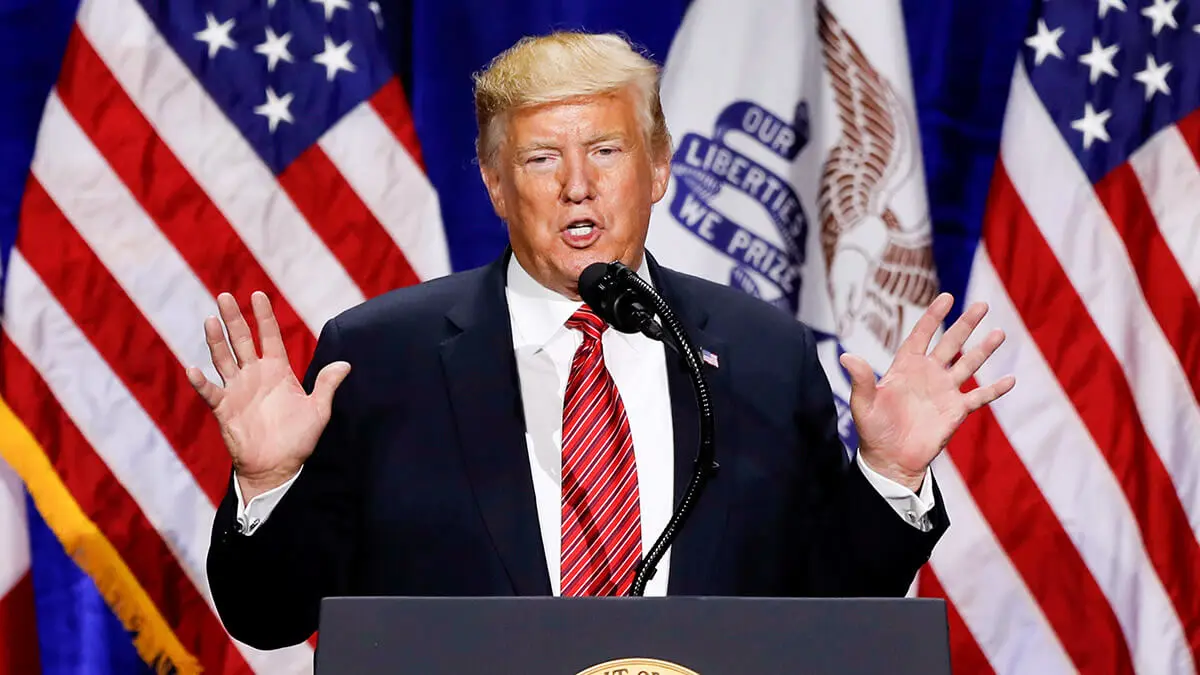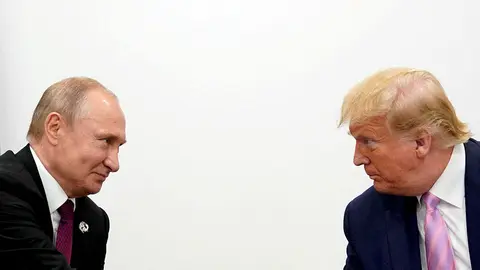Much more than a tariff hammer blow

It is the date that President Donald Trump himself had set for his brutal tariffs on Europe and much of the rest of the world to come into force, the first consequence of which, whether or not such increases are lowered or sweetened, will turn world trade upside down, with consequences, some foreseeable and others not, for the international order already under construction.
In the case of Europe, the increase in joint losses is in the process of being quantified, given that, in addition to the direct tariffs on products from the 27 European countries, we would have to add those that third countries export to Europe, which would also be penalised by the decision of the US president.
In the specific case of Spain, if the announced 25% threat is applied, we are talking about no less than 12,000 million euros. These would be additional taxes on the 18.2 billion euros‘ worth of goods and services exported last year to the United States, and on the 28.2 billion euros’ worth of imports from countries now liable to be sanctioned with these new taxes.
As brutal as the punishment may be, the enormous gap of mistrust that is opening up between the eastern shore of the European Atlantic and the one that washes the US coasts is no less significant. Europe has gone from being a partner and a preferred ally to being a direct political target, without even going through the purgatory of indifference. A disagreement which, although it initially had the virtue of waking up a drowsy Europe, now forces it to rapidly construct alternatives to its own now convulsed order, a decision that is going to be so costly that it may even threaten the very existence of the European Union, given the first and logical reaction when the tsunami appears by surprise: every man for himself.
There is considerable agreement in the reports that the embassies accredited in the United States send to their respective governments, always confidential, of course, but which ‘go as far as they can without revealing any classified secrets’, that they perceive not only a distancing from Europe and Europeans, but also a growing hostility.
Diplomats and other observers of all kinds have been surprised that the presidential tandem, Donald John Trump and James John Vance, the latter seems to be the one who professes the greatest resentment against Europe. In this regard, in the leak - accidental or perhaps not - from the so-called Signal Group, it can be read that the vice-president says verbatim ‘I hate having to bail out Europe again’.
In that conversation, in which they supposedly included the editor-in-chief of The Atlantic by mistake, Vice-President Vance was referring to the imminent US bombing of the Houthis in Yemen, while considering it a mistake for the United States to get involved in that hornet's nest, bearing in mind that ‘only 3% of US trade goes through the Suez Canal, compared to 40% of European trade’.
If to all this we add the increasingly determined desire to annex Greenland, ‘in one way or another, without ruling out the military option’, these are already more than eloquent indications to certify that, with all the mental caveats and restrictions one wants, the US and Europe are on the verge of a structural rupture.
And then? Well, either collectively (which is the most desirable option), or each one for themselves, Europeans will have to fend for themselves. And, on this planet that is getting smaller and smaller in global terms, there are not many alternatives. Trump and Vance seem to be pushing Europe into the arms of China, with whom it will not be at all easy to swim and keep some clothes on the shore. The accelerated trip of President Pedro Sánchez to Beijing shows that, apart from his many other problems, he is seeking to be the first to place himself at the Chinese counter of alternative emergency solutions. There will also be the issue of Russia, whose president Vladimir Putin is being reintroduced to the international stage by Donald Trump.
In any case, we are entering the dangerous game of alliances to be on the right side of history. An almost purely recreational activity in times of stability, bonanza and dead calm, but with undoubted risks of making mistakes, skidding and ending up with our bones in the sea of mud and misery on the wrong side.



